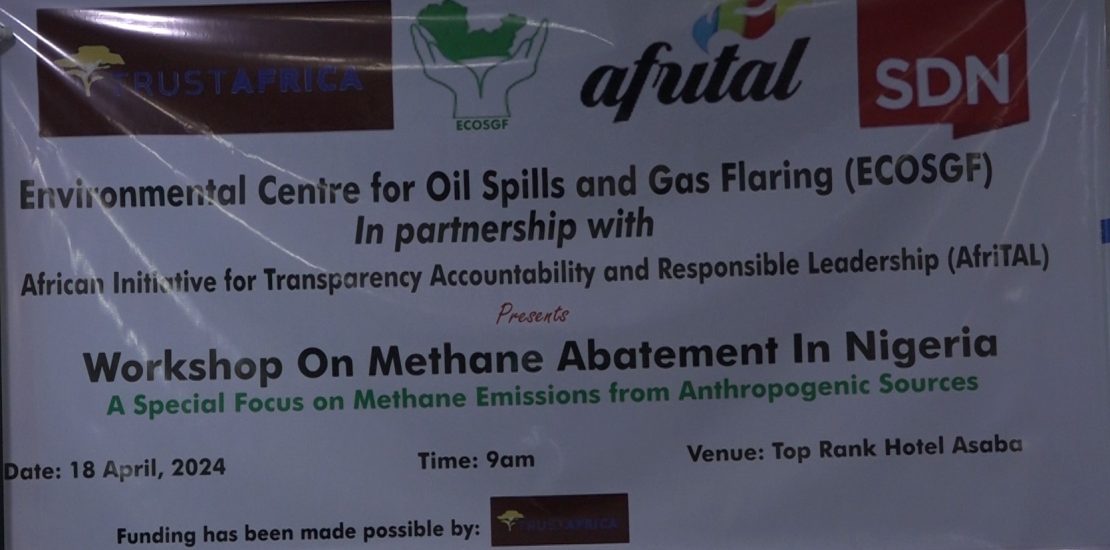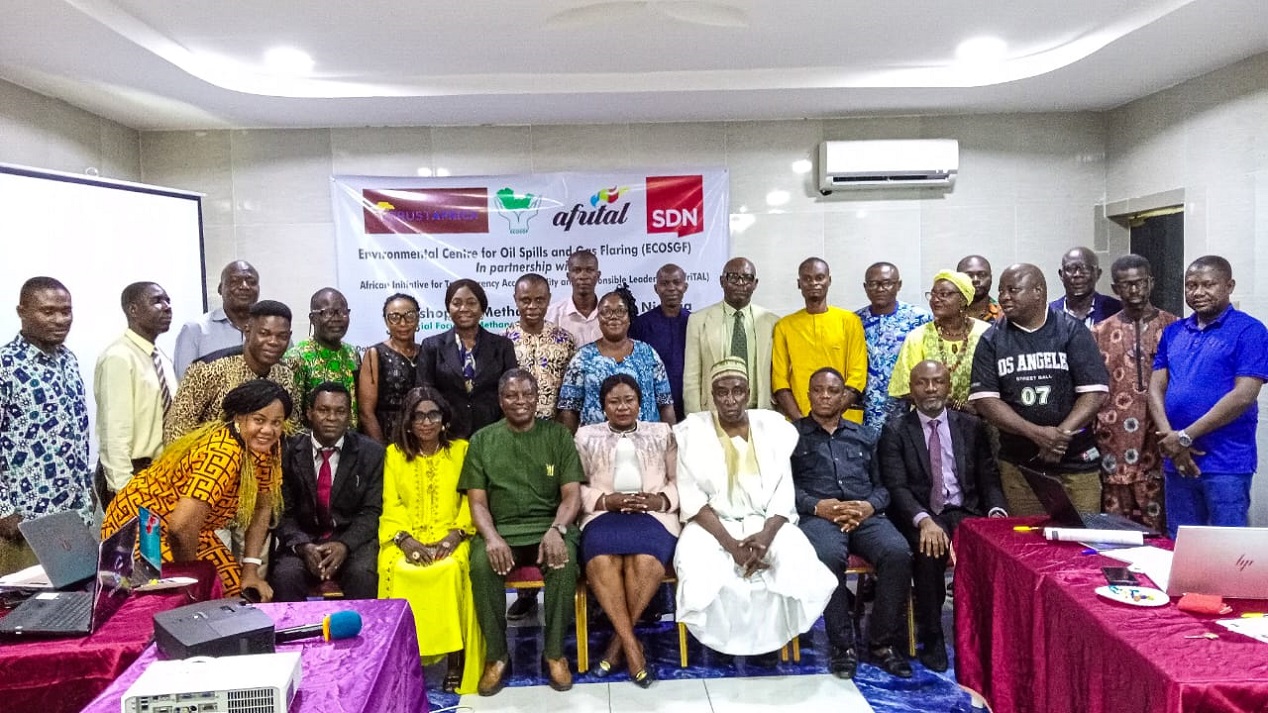- April 19, 2024
- Posted by: Precious David
- Category: Uncategorized

In the battle against climate change, methane emerges as a formidable opponent, its potency as a greenhouse gas outstripping even carbon dioxide. Recognizing the urgent need to address this issue, a Workshop on Methane Abatement in Nigeria convened on April 18th, 2024, at the prestigious Top Rank Hotels in Asaba, Delta State.
Methane emissions from anthropogenic sources, comprising a staggering 60% of global emissions, have propelled the initiation of the Methane Abatement in Nigeria project. Supported by TrustAfrica and led by the Environmental Centre for Oil Spills and Gas Flaring (ECOSGF) and the African Centre for Transparency, Accountability and Responsible Leadership (AfriTAL), this project endeavors to tackle the critical challenge of methane emissions head-on.
After insightful sessions featuring a keynote address by Dr. (Mrs) Philomena Okeowo, Perm. Sec. of the Ministry of Health, Delta State, and research presentations by Dr. Opia Bonnyface, participants identified several key action points:
- Multi-stakeholder Collaboration: Recognizing the complexity of methane emissions, a multi-faceted approach involving public-private partnerships with CSOs, government, and other stakeholders is imperative.
- Technology Adoption: Leveraging existing solutions, such as commercialization of biodigesters, and scaling up successful pilot technologies to drive methane abatement efforts.
- Waste Management and Farming Practices: Embracing effective waste management strategies, sustainable farming practices, and circular economy principles to mitigate methane emissions.
- Political Engagement: Engaging political actors to strengthen regulations and advocate for policies supporting methane abatement, including incentivizing electricity generation from methane.
- Public Awareness: Launching extensive awareness campaigns to educate the public on the value of methane and promote its responsible utilization.
- Educational Collaboration: Reviewing collaboration mechanisms between CSOs and educational institutions to enhance sensitization efforts, especially at post-primary levels.
- Infrastructure Prioritization: Prioritizing integrated engineered dumpsites over waste collection sites to minimize methane emissions, with optimization of existing collection sites in the interim.
- Knowledge Transfer: Demonstrating the operation of biodigesters to facilitate knowledge transfer and encourage adoption across cultural lines.
The Workshop on Methane Abatement in Nigeria marks a significant milestone in the country’s efforts to combat climate change. With a clear roadmap and actionable strategies, stakeholders are poised to drive meaningful change and pave the way for a sustainable future.

